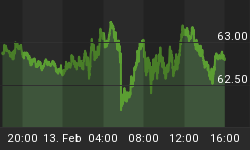As new statistics confirm the extent of the real estate market collapse, many wishful thinkers now herald bad data as positive omens. For example today's release of dismal October housing start figures convinced many naive economists that the market was on the mend. They argued that the 14% decline in housing starts from September (the lowest activity in six years) and the lowest number of building permits for the last nine years would solve the problem of oversupply, thereby restoring balance to the market. Talk about lemonade from lemons.
The current glut of homes comes when home ownerships rates are at the highest levels in history while home affordability is at its lowest. The recent reduction in new and future construction is too little and comes too late to restore balance. The optimistic reaction is based on comparisons to historical averages of prior real estate down-turns. However, a comparison of the real estate mania of 1996-2005 to any prior national real estate boom reveals the folly of applying historical norms to the current correction. Economists, market strategists, and homeowners who still harbor a dream of a real estate soft-landing, with marginal price declines and minimal spill over into the broader economy, are in for one of the ruddiest awakenings of all time.
A variety of factors have combined to create market conditions that simply did not exist in the past. The widespread elimination of lending standards, down-payments, documented loans, and full amortization, combined with rampant proliferation of speculation, leverage, over-building, "creative" financing, re-financing, equity extractions, teaser rates, phony appraisals, ARMs, negative amortization loans, second and third home purchases, and out-right mortgage fraud, have created home prices that are completely untethered from reality.
Furthermore, more so than during any other period of American history, consumer spending is now largely dependent home equity extractions and temporarily low mortgage payments. As a result, predictions as to how the real estate slowdown will impact the economy should be made by comparisons to the deflation of prior asset bubbles. However, fallout from the bursting of this bubble may be more damaging than virtually any financial correction that we have experienced since the Great Depression.
Don't wait for reality to set in. Protect your wealth and preserve your purchasing power before it's too late. Discover the best way to buy gold at www.goldyoucanfold.com, download my free research report on the powerful case for investing in foreign equities available at www.researchreportone.com, and subscribe to my free, on-line investment newsletter at http://www.europac.net/newsletter/newsletter.asp.
















